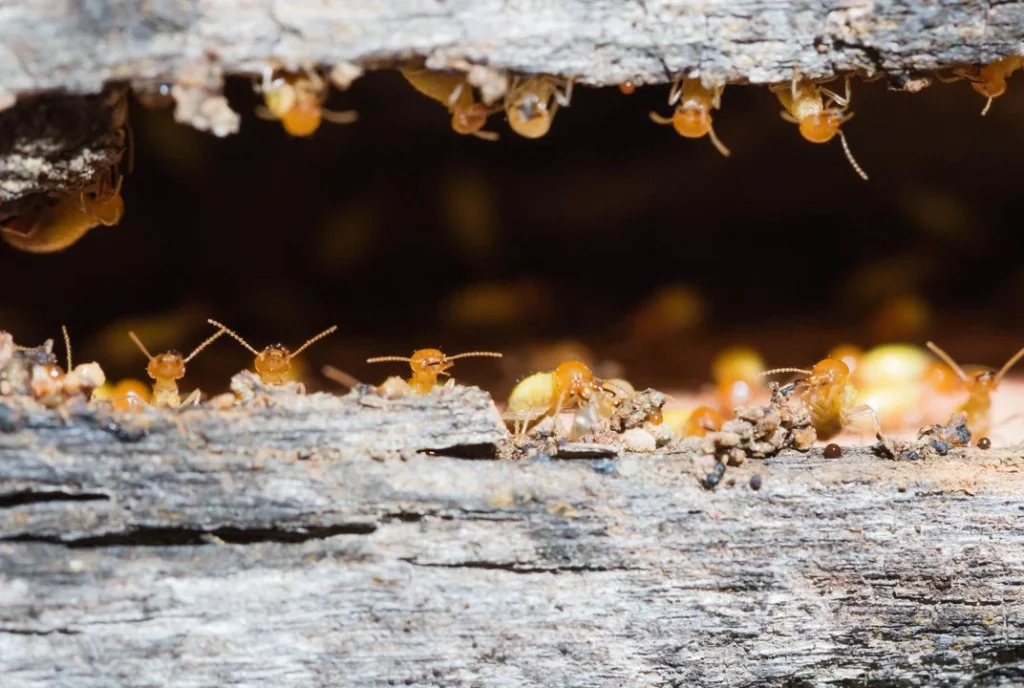Why You Need Termite Protection?
Whether you know it or not, termite protection is a must. Especially if you reside in an area where the termite pressure is high. We’ll be discussing why you need termite protection shortly.
Termites are small, but the damage they can cause can be large scale. It takes a colony of termites to create damage that can cost you thousands of dollars. The last thing you want to do is shake your head and dismiss termites as no big deal.
Think about it: you try to shut one of the doors in your home. It won’t shut properly. The door frame is warped for some reason.
That could be due to termite damage. Even the warped, blistering floors in your home can also confirm this. It’s no coincidence that happens out of nowhere.
We recently spoke with a pest specialist from Pro Pest Control www.propestcontrolmelbourne.com.au about termite prevention and the types of protection available for homeowners. Continue reading to find out more.
What are the government regulations for termite protection?
The regulations for termite protection may depend on the region. Some of the regulations include what kind of treatment can be applied. For example, if you are applying a chemical treatment for termites, it must have a shelf life of up to 50 years if it’s applied by hand.
In accordance to AS 3660.1, it states the use of a three-part system including the following:
- Correct installation of the barrier
- Regular inspection of the barrier by a competent professional
- Adequate barrier maintenance
This system will ensure that the barriers will be effective regardless of the type that’s being installed.
Physical termite barriers
A physical termite barrier can be installed under one condition. It will need to be prior to the home being constructed. If you plan on using wood materials to build a home, your best bet would be to install a physical barrier.
You have the option of using concrete slabs with cold joints, brick cavities, and other concrete slab variations. Included in this is a polymer sheet that will be covered in termiticide. Once installed, you can expect these to last anywhere from 20 years and beyond.

Chemical termite barriers
If your house is already built, you might think about installing a chemical termite barrier. It will leak into the soil around your property when it is applied. Most of these substances ought to be secure and environmentally friendly.
These chemical barriers are not permanent. These will typically last anywhere from 8 to 10 years. Some chemical barriers can last longer than 50. However, it will also rely on the nature of the chemical components used.
Chemical barriers are effective but will be less effective time wise compared to their physical counterparts. Termite pressure, the construction of the home, and the type of soil will determine the effectiveness of such chemical barriers.
Termite baiting
If a chemical barrier doesn’t work, that’s when you’ll want to use termite baiting. This is the last thing you’ll want to do. Chemical barriers will work most of the time.
However, there may be that off chance that it doesn’t. In that situation, you’ll want to install baiting stations strategically in areas throughout your property. Termites will feed off of wood-based bait that will eventually kill off the entire colony in a matter of days, even months.

Why Does Termite Defense Work?
Termite defence is essential and will be effective if properly used. One out of four homes will be subjected to a termite attack.
That’s why it’s important to find a termite defence system that will be effective. What you’ll want to do at this point is contact a termite control service to help you figure out which options are best for you.
Signs of Termites in Your Home
The following are signs of termite infestations in your home:
- Sagging floors and door frames: You may have an uneven floor or be unable to shut a door properly.
- Sawdust patches: Termite droppings may look like patches of sawdust. Upon close inspection, they will be pellet-like.
- Mud trails: If you notice any lengthy trails of mud along the side of your home, that’s a dead giveaway that termites have entered your home.
- Damage to floors and ceilings: Again, cracking, sagging, and blistering are among the signs.
What are the costs?
Expect termite treatment costs to be anywhere from $2000 to $4000. Your factors will vary including the size of the house, type of treatment, your location, etc.
Conclusion
If you don’t want to deal with termites in your home, protecting yourself is the best possible option. Choose the best treatment that fits you best (as well as your budget). For example, if you have a home that is already built, but susceptible to termites, use a chemical barrier.






